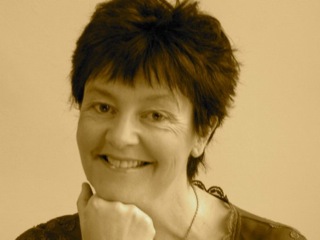 If you’re a writer, this is a great time to be alive.
If you’re a writer, this is a great time to be alive.
Don’t be fooled by the wailing and gnashing of teeth emanating from the publishing industry. Just because traditional publishers are in crisis doesn’t mean that writing – or even publishing – is in crisis.
Right now, the balance of power between authors and publishers is shifting – to the point where many writers are deciding they no longer need publishers to sell their books and achieve their creative and commercial ambitions.
You’ve probably seen the headlines about J.K. Rowling’s decision to self-publish the ebook versions of her Harry Potter series, and the astonishing journeys of John Locke and Amanda Hocking from complete unknowns to selling millions of books via Amazon’s Kindle Direct Publishing platform.
But the self-publishing revolution is about more than the celebrities and million-copy-sellers.
Read David Gaughran’s book Let’s Get Digital or Joanna Penn’s blog and you’ll hear remarkable stories of numerous authors who aren’t millionaires, but are selling thousands of books a month, quitting their jobs and earning a nice living doing what they have always wanted to do: write.
As an author and publisher with experience of both traditional and self-publishing, Orna Ross knows more than most about the current opportunities and pitfalls for writers.
Orna’s a long-time friend of Lateral Action, and she has kindly agreed to answer some questions for Lateral Action readers, about self-publishing and the Alliance of Independent Authors (ALLi) she has founded, which has its online launch this week.
Why are so many authors taking the self-publishing route these days?
It’s enormously exciting to have the opportunity to independently publish and reach readers in this way. Self-publication served only a tiny number of writers before digital technology enabled print-on-demand and the direct distribution of ebooks. This technology simultaneously does four things that are very good for writers.
- It gives us a global readership, instead of confining us to specific territories.
- Our books are continually available: there is no such thing as ‘out-of-print’ any more.
- It takes away the necessity for ‘middlemen’ like agents, publishers and distributors (though we still may choose to work with such partners).
- It gives our readers a point-of-purchase just at the moment they discover they want our book.
As the creative possibilities of this revolution make themselves felt, the self-publishing option is attracting more and more writers, both those who are having difficulty finding a traditional publisher and those who have previously trade published.
You’re using the term ‘independent authors’ in the Alliance’s name – is an independent author the same as a self-published author?

An author who hires a self-publishing company to handle every aspect of publication is probably less independent than somebody with a traditional publishing contract. And many of our members have used traditional publishers for some of their books and are open to such partnerships again in the future, if advantageous.
Indie authors are those of us who take charge of the publication, distribution and promotion of one or more of our books – though we may outsource some of those functions. We generally own our own ISBNs and licence our own rights, sometimes with the help of an agent.
This doesn’t mean we do everything ourselves. We hire designers and editors and sometimes make partnerships with trade publishers, rights agents, and distributors: anyone who can help us reach our readers. Whoever we are working with, whether we contracted them or they contracted us, we are recognised as an equal – or perhaps primary – partner in the publication process.
This is very different to the traditional publishing model which sees authors as a resource to be mined. Or, in some cases sad to say, exploited.
Every book – whether traditionally or independently published – is a team effort. Even those who think of themselves as most fiercely indie must use Amazon and other retailers and distributors. What’s new is that now, the writer can take the helm, be the leader of the team, and produce work that accords precisely with their vision.
It is the most creative choice a writer can make, and very empowering, but it requires a variety of skills and is best suited to writers of an entrepreneurial bent.
What about the traditional objection to publishing one’s own work – that it’s ‘vanity’ publishing for authors who can’t land a deal with a publisher?
Even the most conservative publishing exec has stopped using that line, as writers of clear and outstanding talent choose to leave traditional publishing to go indie.
It was always a bogus notion, which we can see when we apply it to other creatives. Nobody accuses a musician who wants to play his tunes, or an artist who wants to exhibit her paintings, of vanity. The notion is clearly absurd when considered from a creative’s standpoint.
Indeed, at this point, I think one could more justifiably claim that it’s vanity for a writer to need to say ‘I’ve been published by [insert publisher’s name here]’, rather than letting their writing speak for itself.
When we think of direct publishing, we think Kindle. Is there a danger that an author could set out to be independent but end up just as dependent on Amazon as authors have been to traditional publishers?
All indie authors are enormously indebted to Amazon’s vision and tools and it would be churlish not to recognise, and be grateful for, their outstanding role in this publishing revolution. Having said that, monopolies are never good – for art or commerce – and we encourage our members to retail through a variety of outlets.
It’s impossible to predict the future and certainly were Amazon to change their terms, indies could find themelves very vulnerable – but I don’t think writers will ever be as dependent as they were when the only distribution channel for their work was the bookstores.
Already we are seeing independent authors seeking new kinds of financial arrangements with subsidiary rights agents, indie bookstores and presses, crowdsourced funding, author collectives and other potential partners. In these partnerships, risks and rewards are shared in a very different way to the traditional 10% or less royalty arrangement.
ALLi hopes to facilitate many such mutually beneficial partnerships.
What are some of the most important things authors should consider before deciding to publish their work direct?
Who am I?
Why do I write?
Why should people care about this book?
Getting the answers to those questions will provide the right framework within which to consider marketing and (buzzword alert!) author platform.
I like to think of promotion as an extension of the writing. It’s not like “Over here’s the important writing in a book, with the trivial marketing stuff over there”. The more you can bring those together into one congruent series of messages, the better – for you, and for your readers.
The other most important questions is: is it really ready? Any seasoned writer knows we always think we’re done before we are. Tradtionally, it was the editor’s role to put the brakes on, to help steer the writing through the final stages. Now we need to hire our own editors to do what we cannot do for ourselves.
Editing is an essential tool for every author at every stage of development. A writing peer can be useful at the earlier stages but critique feedback is not the same as a good editor.
If you think you don’t have the money for an edit, you need to beg, borrow, save or steal it. Otherwise, do yourself and everyone else a favour – don’t publish.
What are some of the most common mistakes you see by independent authors – and how can they be avoided?
Aside from spending too much time on Twitter and calling it work? The big mistake is the same one that trad pubbed writers make: one-book sydrome. Too many writers get stuck trying to get their first book noticed and when it isn’t, they become discouraged. It’s understandable – writing a book takes a great deal of effort, physical and emotional. So does promoting. But the very best calling-card for a book is another book. The sooner you can get over yourself and move on to book two, then book three, the better.
Last but not least, why an Alliance of Independent Authors? What does it offer writers?

Other advantages are discounts on self-publishing services. A watchdog service that informs members about the scams and sharks circling this arena. A searchable database for literary industry and media searching for good indie authors.
Founded by a trad-published author turned indie, our Alliance (ALLi) is unique in being the only global nonprofit association for self-publishing writers. Once the expenses of running the organisation are covered, 100% of profits go back to our membership to provide the services above – and things like translation and film rights agency, presence at trade fairs etc. The sort of resources lone writers can’t afford but which become possible in association.
We’d also like to introduce some community outreach, bringing self-publishing to communities and writers who traditionally have not have a publishing voice.
Essentially, though, we will be guided by our members’ needs as we go forward – and those needs are sure to mutate as the indie movement grows. Which it will. We are absolutely thrilled to be supporting those writers who want to join in.
The Alliance of Independent Authors (ALLi) will have its online launch via Shindig.com on Thurs next 24th May 2012. You can join the Alliance here.
Note from Mark: I’m pleased to be an advisor to the Alliance, as I think it’s a much-needed project, and Orna and her team have the experience, talent and integrity to do it right.
Orna Ross worked for 20 years in writing and publishing in Dublin – as a features journalist and editor, running a writing school and literary agency, all the while writing and publishing stories and poems.
In 2011 she reclaimed her rights from her publisher, Penguin, and struck out as an independent author. Her experience of self-publishing as more rewarding, creatively and financially, led her to found The Alliance of Independent Authors. She now writes novels and poems and blogs at Go Creative! blog and SelfPublishingAdvice.org.

It’s a great initiative – hats off to Orna. I love the idea of bringing self-publishing into the community and working with those whose voices have been excluded so as to let their stories be told
Yes, it’s really encouraging to come across stories of writers whose novels gathered dust for years, having been rejected by numerous publishers, who are now finding enthusiastic readers – and lots of them.
What are some of the most important things authors should consider before deciding to publish their work direct?
Another question an author needs to ask is: What type of people will be interested in reading this book? An author needs to know their target audience so they can eventually promote their book.
Very true. That dovetails nicely with Orna’s question “Why should people care about this book?”. You need to know who you’re talking to and what’s in it for them to buy the book (and read it).
Thanks for sharing this interview with Orna – amazing initiative! One that I will definitely look to one day when I am ready to publish something I write. It is so inspiring to see awesome initiatives like this that benefit people by helping them do ‘their thing’ and get it out there for the world to be blessed by it =)
Yes Orna’s a real inspiration – I think you both have a lot of values in common.